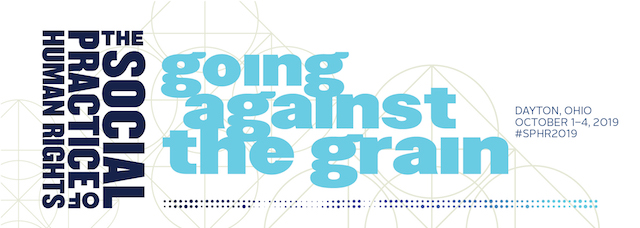Location
Rethinking Transitional Justice
Start Date
10-3-2019 11:00 AM
End Date
10-3-2019 12:30 PM
Keywords
Chile, mass atrocity, memorialization, education
Abstract
In this presentation, I reference a chapter, that is taken from my newly published book, Affect Theory and Comparative Education Discourse: Essays on Fear and Loathing in Response to Global Educational Policy and Practice (Bloomsbury Academic, 2019). I argue that when schools fail to address issues of social memory or basic existential questions involved in the pursuit of meaning-making for the purposes of understanding human rights issues, popular support evolves for other institutions to fill the void. Through examining the case of Chile, efforts to memorialize victims of the Pinochet dictatorship occur in the absence of robust initiatives to address these questions as part of the formal knowledge schools transmit. The writings of Agamben and Baudrillard are noted as they offer perspectives regarding the limitations of memorialization. In Agamben’s case, he notes the power of the state to determine not only what constitutes citizenship but whose lives the state deems worthy of recognizing. In Baudrillard’s writings, he critiques the impossibility of coming to terms with the horrors of the past, viewing symbols of memorialization as insufficient attempts to comprehend their significance. Afterwards, I apply their insights to a discussion of a number of Chilean memorials, which are described and analyzed. In spite of their many limitations, I argue that their presence signifies a lack of trust in the formal schooling process to address these questions and the fear that absent their existence, there would be no attempt to address the issues of collective identity that social memory presents.
The repercussions of this case study for engagement in human rights discourse are clear. On the one hand, acts of memorialization must contend with negative pressures that commodify social memory and treat efforts to evoke understandings of mass atrocity as globalized objects that are widely circulated, exchanged, and consumed in ways that can become superficial and superfluous.
On the other hand, one cannot assume that public schools will naturally promote such discourse, because of their role as agencies that serve to protect the legitimacy of the state and the concerted efforts to limit their role in the service of the public good, given neo-liberal pressures that have become broadly globalized.
Author/Speaker Biographical Statement(s)
Irving Epstein is the Ben and Susan Rhodes Professor of Peace and Social Justice at Illinois Wesleyan University, USA, where he is Chair of the Department of Educational Studies and Director of the Center for Human Rights and Social Justice. He has published five books and over fifty journal articles and book chapters related to comparative education themes. In addition, he has served as an associate editor of the Comparative Education Review, and parliamentarian to the Board of Directors of the Comparative and International Education Society. He also is a longstanding member of the Board of Directors of the Scholars at Risk Network, an international organization of over 500 universities around the world, dedicated to protecting scholars in danger while promoting academic freedom advocacy.
Included in
Addressing Mass Atrocity in Chile: Learning and Unlearning as a Function of Social Memory
Rethinking Transitional Justice
In this presentation, I reference a chapter, that is taken from my newly published book, Affect Theory and Comparative Education Discourse: Essays on Fear and Loathing in Response to Global Educational Policy and Practice (Bloomsbury Academic, 2019). I argue that when schools fail to address issues of social memory or basic existential questions involved in the pursuit of meaning-making for the purposes of understanding human rights issues, popular support evolves for other institutions to fill the void. Through examining the case of Chile, efforts to memorialize victims of the Pinochet dictatorship occur in the absence of robust initiatives to address these questions as part of the formal knowledge schools transmit. The writings of Agamben and Baudrillard are noted as they offer perspectives regarding the limitations of memorialization. In Agamben’s case, he notes the power of the state to determine not only what constitutes citizenship but whose lives the state deems worthy of recognizing. In Baudrillard’s writings, he critiques the impossibility of coming to terms with the horrors of the past, viewing symbols of memorialization as insufficient attempts to comprehend their significance. Afterwards, I apply their insights to a discussion of a number of Chilean memorials, which are described and analyzed. In spite of their many limitations, I argue that their presence signifies a lack of trust in the formal schooling process to address these questions and the fear that absent their existence, there would be no attempt to address the issues of collective identity that social memory presents.
The repercussions of this case study for engagement in human rights discourse are clear. On the one hand, acts of memorialization must contend with negative pressures that commodify social memory and treat efforts to evoke understandings of mass atrocity as globalized objects that are widely circulated, exchanged, and consumed in ways that can become superficial and superfluous.
On the other hand, one cannot assume that public schools will naturally promote such discourse, because of their role as agencies that serve to protect the legitimacy of the state and the concerted efforts to limit their role in the service of the public good, given neo-liberal pressures that have become broadly globalized.



